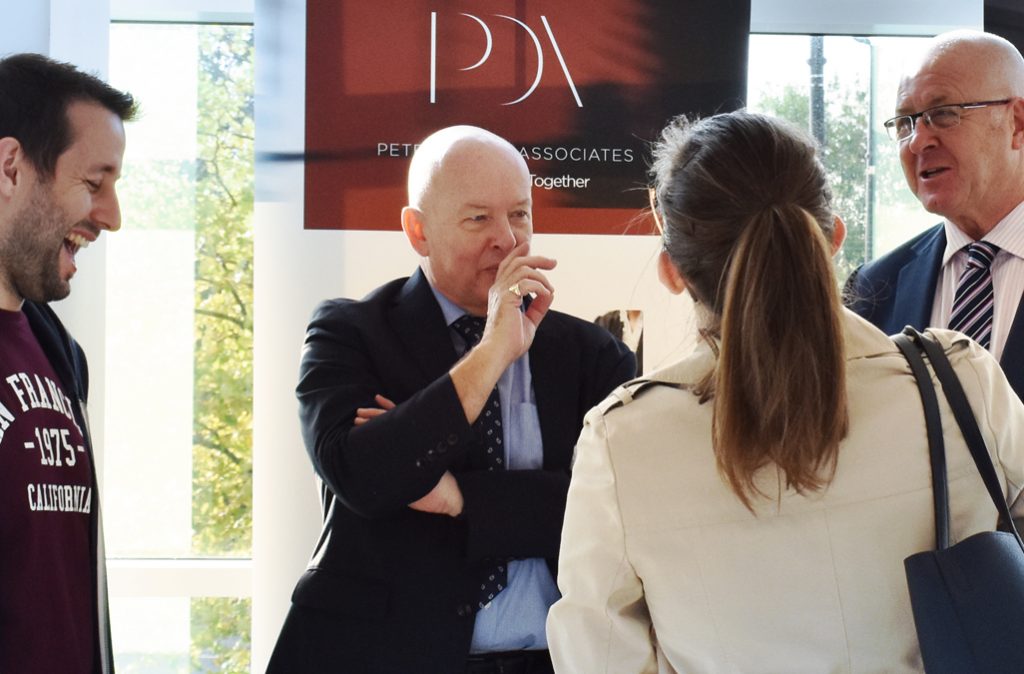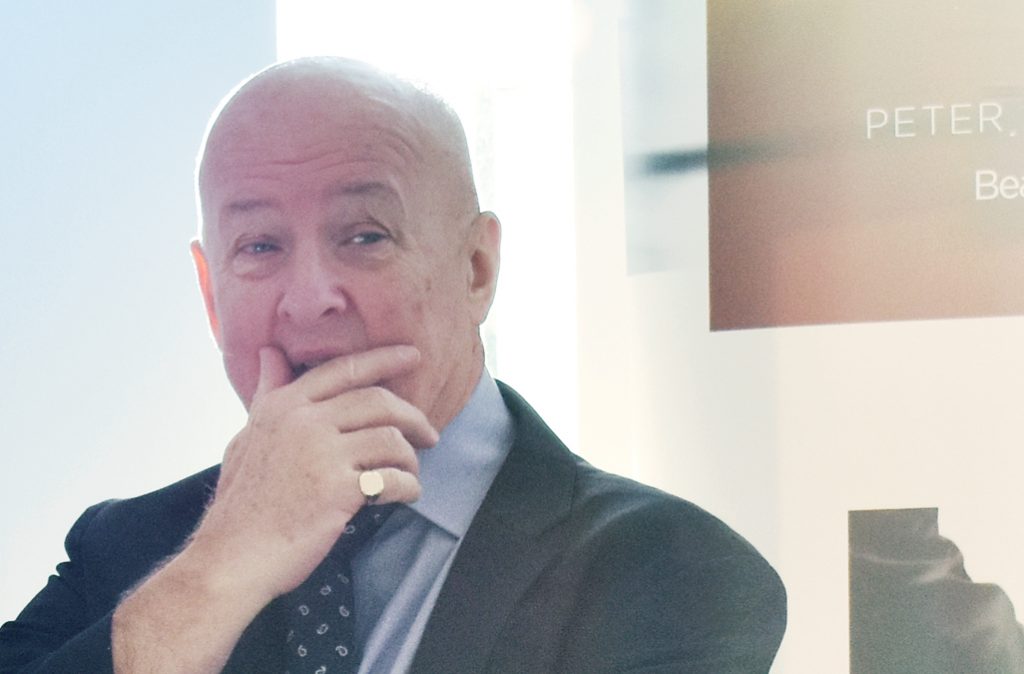As founder of Peter Darby Associates, we were keen to find out more about the man behind PDA Counter Fraud. We asked the newest member of the team, Marketing Assistant Rachel Ewart, to set up a series of ‘getting to know you’ questions for each of the PDA team starting with Peter Darby, this is what we found out…
What’s your favourite part of the job?
It has to be the training. There are a couple of distinct parts to the job – running the business and getting involved in the training but if I was to focus on the training side, the highlight is seeing students go through the learning process and earning their accreditation. It’s rewarding to see the light go on in students’ eyes when things click into place. It’s great receiving positive feedback from students once they have completed their training and to know you have set someone off on the pathway to, hopefully, a long and successful career.
What experience and qualifications do you have?
I started working in Fraud Investigation in 1972 so next year I will be celebrating 50 years of working in the Counter Fraud environment. I am an accredited Counter Fraud Specialist and Accredited Counter Fraud Trainer. I currently chair the Training and Education Committee of the Counter Fraud Professional Accreditation Board. I am also a member of the Cabinet Office Counter Fraud Cross Sector Advisory Group which played its part in the launch of the Counter Fraud Profession in October 2018. The experience and the knowledge that I have gained over what is fast approaching 50 years holds me in good stead to do my job. When I started there was no official training, we were given a bunch of files and left to get on with it, so I am pleased I have been able to play my part working with colleagues in 1998 to introduce professional accredited training to the counter fraud community.
How long have you worked in the position and industry?
I started work in a benefits office in Leicester in the late 60s and I moved to a local fraud investigation post in 1972. Following this I became a Specialist Investigator based in the Regional Office in Nottingham. I worked on several government fraud initiatives such as Specialist Claims Control before being promoted and managing two peripatetic teams of specialist investigators operating across the Midlands. Following further promotion, I went to work in Headquarters working on Counter Fraud Strategy and Training. My role included Project Managing a cross government Counter Fraud Identity initiative and taking forward the Market Testing of counter fraud training. The last job I had in government in 1998/99 was leading the project team to put in place the government Green Paper aspiration of developing a training and learning pathway for all counter fraud investigators. At the time it was referred to as Professionalism in Security and today we know it as the Accredited Counter Fraud Specialist award. Overall, I have worked in a counter fraud role in three central government departments Her Majesty’s Passport Office, Immigration and what is now called the Department for Work and Pensions. I left the public sector in 2000 and set up my Counter Fraud Training and Consultancy business, PDA. That is my counter fraud career in a nutshell over what is fast approaching a 50-year period.
How has the industry/sector changed since you started?
The difference between now and then is immense. When I first started there was no guidance in terms of legislation as to how you should operate. If we were cautioning someone, they would be cautioned under “the Judge’s Rules”. There was no Data Protection Act or Human’s Right Act. There was no Fraud Act. There was nothing like that at all. We only had the Theft Act 1968 and we prosecuted offences of deception. If we wanted to get local intelligence, we would go to a police station and share information over a cup of tea. It worked that way before data protection came into the picture.
What drew you to counter fraud?
I started off working in a busy city centre benefits office in the late 60s where I was dealing with the public, (often with very difficult people) and I just got fed up with being told lies day in and day out. People would come into the benefits office not telling the truth, but they were getting paid benefits. I nearly left the Civil Service at that point but when a job came up on the fraud section, I jumped at the chance and I never looked back.
What does the average week look like for you?
Weeks can vary but some of my main responsibilities are;
- Reviewing training material and looking at any redesign where necessary.
- Delivering courses (particularly the ACFS with Malcolm Hollett)
- Dealing with enquiries and sign-ups with our courses
- Consultancy
- Advising companies on their Counter Fraud strategies.
To be honest, I am a bit of a workaholic and running a business means that it is never a 5-day a week job. I work more than I should and in fact I should have retired a few years back, but I love my job – I wouldn’t have stuck with it all these years otherwise. I have been very fortunate to have worked with some great people – managers, colleagues and staff.
What do you hope for PDA’s future?
I hope PDA continues to grow as a company and no doubt I will be involved in some form or another as I don’t see full retirement for myself just yet. PDA has come a long way from when it started. Recently there has been a lot of development in terms of online delivery of training as well as our marketing but there is still more on the horizon. I want to work with an academic institution to have more of our material accredited. Covid has definitely delayed some projects but we are hoping for things to get moving again by the middle of this year.
What was your best or worst job decision?
Some years ago, I applied to join GCHQ. There was a job in the security services, so I applied, I was interviewed, and I then underwent a lengthy background and financial vetting process. I passed all that, but it took them a year to tell me I had passed so by the time they offered me the job I had had a promotion where I was working in government, so I refused the job. I will never know if the decision was a good or bad one. In a sense it can be considered as both. Perhaps I missed out on what would have been a great job but then again, I can look at it as a good decision because instead I carried on in government, got promoted again. I left in 2000 and for 20 years I have been running a business, which I may never have done if I had accepted the position at GCHQ. The decision I had made to join fraud in the first place was a brilliant decision and I never looked back from that. I found my niche in life.
What has been your biggest challenge? And how did you overcome it?
My biggest challenge was the final project that I led in government – putting into place the government ambitions set out in the Green Paper – ‘Beating Fraud is Everyone’s Business’. Frank Field MP who at the time was a Government Minister was responsible for taking forward the government’s response to fraud. The aspiration was to provide common training for all government fraud investigators that led to an academic development pathway. Putting that in place was challenging but worth it. The initial aim was to retrain 3000 investigators for the Benefits Agency. The newer investigators wanted this to happen and some of the ‘longer in the tooth investigators’ were more resistant to accepting change. It was surprising to have this resistance from, not only some working in fraud investigation, but senior civil servants who thought they knew better than Ministers what was required. We managed to deflect most of that, and we got there in the end.
How do you see counter fraud changing in the future?
A necessary change which I think will happen is greater data sharing. People seem to be under the impression that as soon as one department within government knows something then all other departments do too, and this is not the case. I think it is inevitable that there will be even more data sharing in the future. However, I think this will be part of what will be a greater change. Fraud is not taken seriously enough. A major bugbear of mine is the constant reference to ‘scams’ by the media. It’s not scams, its fraud. I think the time is fast approaching for us to take fraud more seriously than we do now. There are resourcing issues in everything but instead of each organisation having its own fraud unit there will be a central unit overseeing how UK plc investigate and manage the fraud threat.
Read more about Pete and the rest of PDA on The Team


